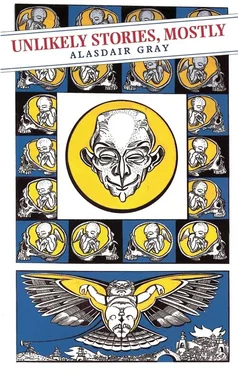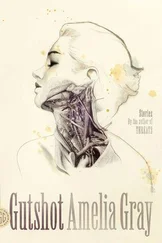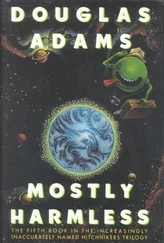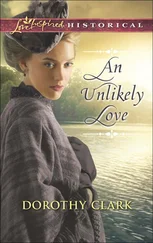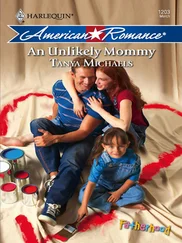“Oh yes sir, hahaha! Oh yes sir, hahaha!” shouted Tohu, guffawing hysterically.
The emperor said, “You don’t need a joke. You are laughing happily already!”
I realized that this was the emperor’s joke and gave a brief appreciative chuckle. I had known the emperor was not human, but was so surprised to see he was not alive that my conventional tears did not flow at the sound of his voice. This was perhaps lucky as Adoda was too far below me to collect them.
The emperor moved to the headmaster of history and spoke on a personal note: “Ask me intimate questions, Bohu.”
I said, “Sir, have you always been a puppet?”
He said, “I am not, even now, completely a puppet. My skull and the bones of my hands are perfectly real. The rest was boiled off by doctors fifteen years ago in the operation which made me immortal.” I said, “Was it sore becoming immortal?”
He said, “I did not notice. I had senile dementia at the time and for many years before that I was, in private life, vicious and insensitive. But the wisdom of an emperor has nothing to do with his character. It is the combined intelligence of everyone who obeys him.”
The sublime truth of this entered me with such force that I gasped for breath. Yes. The wisdom of a government is the combined intelligence of those who obey it. I gazed at the simpering dummy with pity and awe. Tears poured thickly down my cheeks but I did not heed them.
“Sir!” I cried, “Order us to write for you. We love you. We are ready.”
The emperor moved to the headmaster of civil peace and shook the tiny imperial frock into dignified folds before speaking. He said, “I order you to write a poem celebrating my irrevocable justice.”
I said, “Will this poem commemorate a special act of justice?”
He said, “Yes. I have just destroyed the old capital, and everyone living there, for the crime of disobedience.”
I smiled and nodded enthusiastically, thinking I had not heard properly. I said, “Very good sir, yes, that will do very well. But could you suggest a particular event, a historically important action, which might, in my case, form the basis of a meditative ode, or a popular ballad, in my colleague’s case? The action or event should be one which demonstrates the emperor’s justice. Irrevocably.”
He said, “Certainly. The old capital was full of unnecessary people. They planned a rebellion. Fieldmarshal Ko besieged it, burned it flat and killed everyone who lived there. The empire is peaceful again. That is your theme. Your pavilion is now decorated with information on the subject. Return there and write.”
“Sir!” I said, “I hear and respect your order, I hear and respect your order!”
I went on saying this, unable to stop. Tohu was screaming with laughter and shouting, “Oh my colleague is extremely unconventional, all great poets are, I will write for him, I will write for all of us hahahaha!”
The headmasters were uneasy. The emperor ran from end to end of them and back, never resting till the headmaster of moral philosophy forced him violently onto the headmaster of etiquette. Then the emperor raised his head and squeaked, “This is not etiquette, I adjourn the college!”
He then flopped upside down on a stool while the headmasters hurried out.
I could not move. Janitors swarmed confusedly round my entourage. My feet left the floor, I was jerked one way, then another, then carried quickly backward till my shoulder struck something, maybe a doorpost. And then I was falling, and I think I heard Adoda scream before I became unconscious.
I woke under a rug on my writing-throne in the hall of the pavilion. Paper screens had been placed round it painted with views of the old capital at different stages of the rebellion, siege and massacre. Behind one screen I heard Tohu dictating to his secretary. Instead of taking nine days to assimilate his material the fool was composing already.
Postal pigeons whirl like snow from the new palace, he chanted.
Trained hawks of the rebels strike them dead.
The emperor summons his troops by heliograph:
“Fieldmarshal Ko, besiege the ancient city.”
Can hawks catch the sunbeam flashed from silver mirror?
No, hahahaha. No, hahahaha. Rebels are ridiculous . I held my head. My main thought was that you, mother, you, father, do not exist now and all my childhood is flat cinders. This thought is such pain that I got up and stumbled round the screens to make sure of it.
I first beheld a beautiful view of the old capital, shown from above like a map, but with every building clear and distinct. Pink and green buds on the trees showed this was springtime. I looked down into a local garden of justice where a fat magistrate fanned by a singing-girl sat on a doorstep. A man, woman, and child lay flat on the ground before him and nearby a policeman held a dish with two yellow dots on it. I knew these were clogs with toads on the tips, and that the family was being accused of extravagance and would be released with a small fine. I looked again and saw a little house by the effluent of a sewage canal. Two little women sat sewing on the doorstep, it was you, mother, and your sister, my aunt. Outside the fence a man in a punt, helped by a child, dragged a body from the mud. The bodies of many members of the honoured-guest-class were bobbing along the sewage canals. The emperor’s cavalry were setting fire to the south-eastern slums and sabering families who tried to escape. The strangest happening of all was on a hill outside the eastern gate. A man held the rope of a kite which floated out over the city, a kite shaped like an eagle with parrot-coloured feathers. A child hung from it. This part of the picture was on a larger scale than the rest. The father’s face wore a look of great pride, but the child was staring down on the city below, not with terror or delight, but with a cool, stern, assessing stare. In the margin of this screen was written The rebellion begins .
I only glanced at the other screens. Houses flamed, whole crowds were falling from bridges into canals to avoid the hooves and sabres of the cavalry. If I had looked closely I would have recognized your figures in the crowds again and again. The last screen showed a cindery plain scored by canals so clogged with ruin that neither clear nor foul water appeared in them. The only life was a host of crows and ravens as thick on the ground as flies on raw and rotten meat.
I heard an apologetic cough and found the headmaster of literature beside me. He held a dish with a flask and two cups on it. He said, “Your doctor thinks wine will do you good.”
I returned to the throne and lay down. He sat beside me and said, “The emperor has been greatly impressed by the gravity of your response to his order-to-write. He is sure your poem will be very great.” I said nothing. He filled the cups with wine and tasted one. I did not. He said, “You once wanted to write about the building of the new palace. Was that a good theme for a poem?”
“Yes.”
“But the building of the new palace and the destruction of the old capital are the same thing. All big new things must begin by destroying the old. Otherwise they are a mere continuation.”
I said, “Do you mean that the emperor would have destroyed the old capital even without a rebellion?” “Yes. The old capital was linked by roads and canals to every corner of the empire. For more than nine dynasties other towns looked to it for guidance. Now they must look to us.”
I said, “Was there a rebellion?”
“We are so sure there was one that we did not enquire about the matter. The old capital was a market for the empire. When the court came here we brought the market with us. The citizens left behind had three choices. They could starve to death, or beg in the streets of other towns, or rebel. The brave and intelligent among them must have dreamed of rebellion. They probably talked about it. Which is conspiracy.”
Читать дальше
